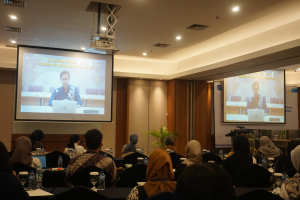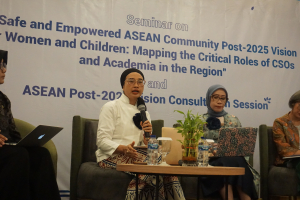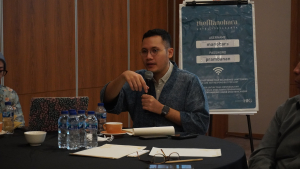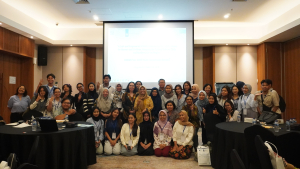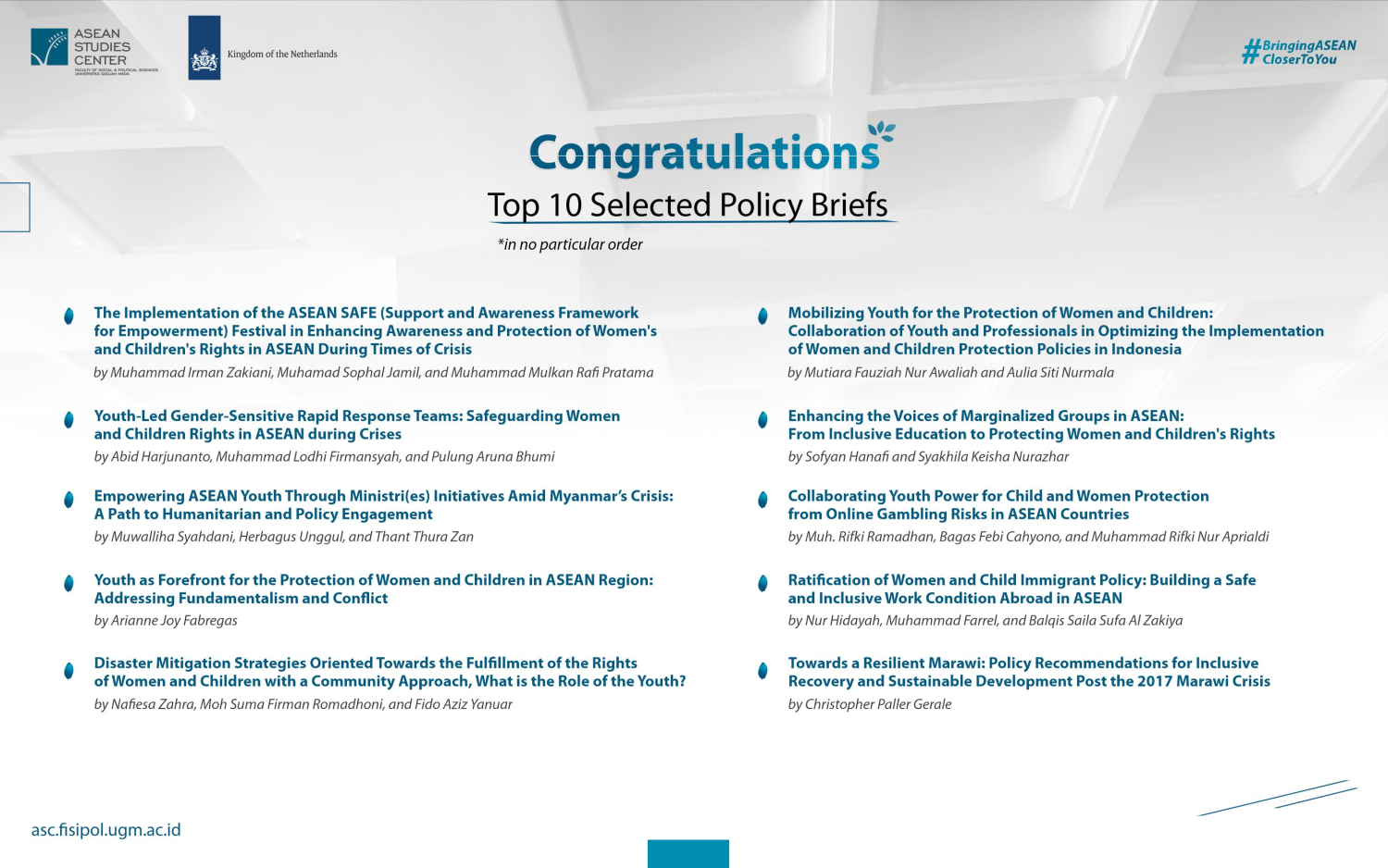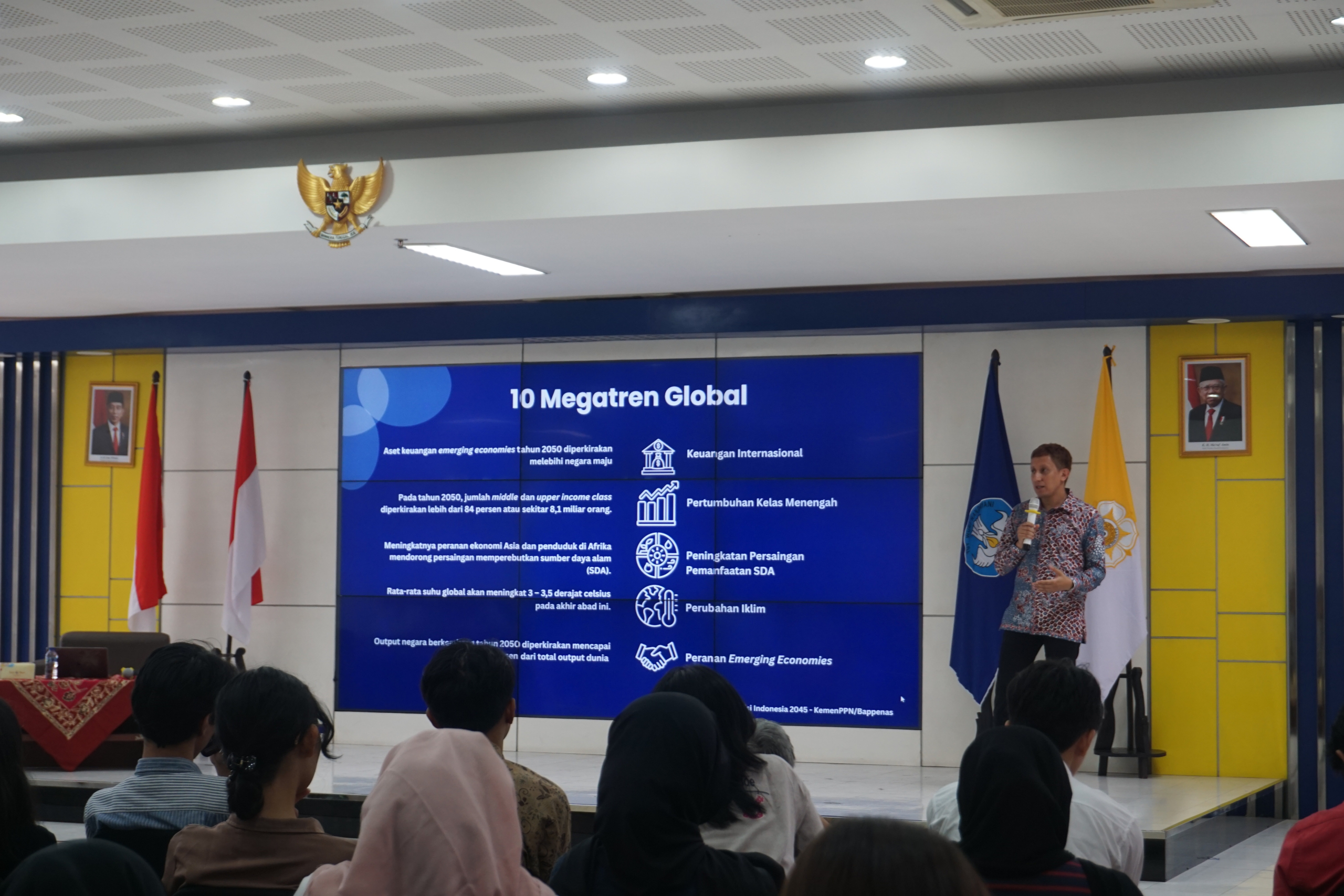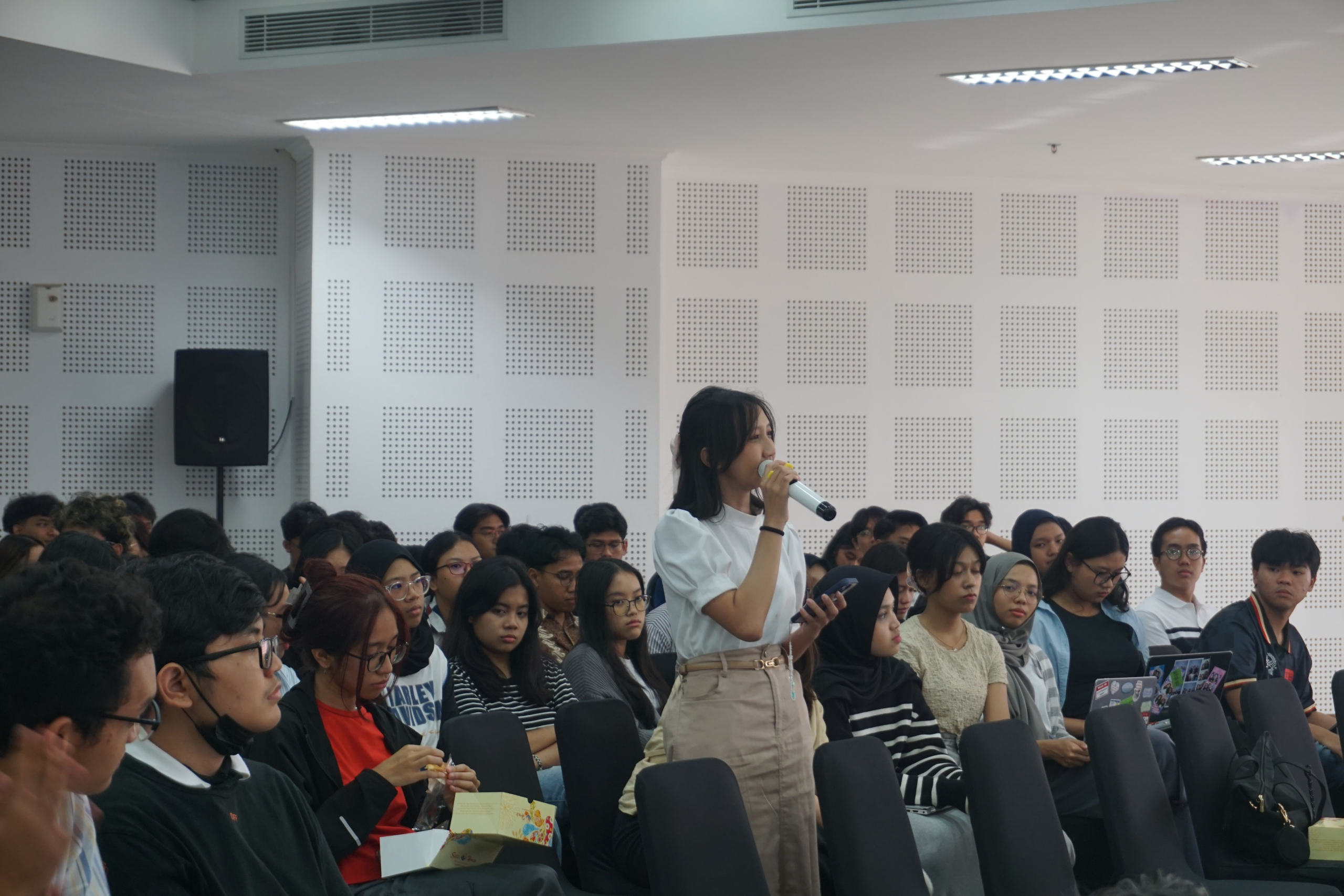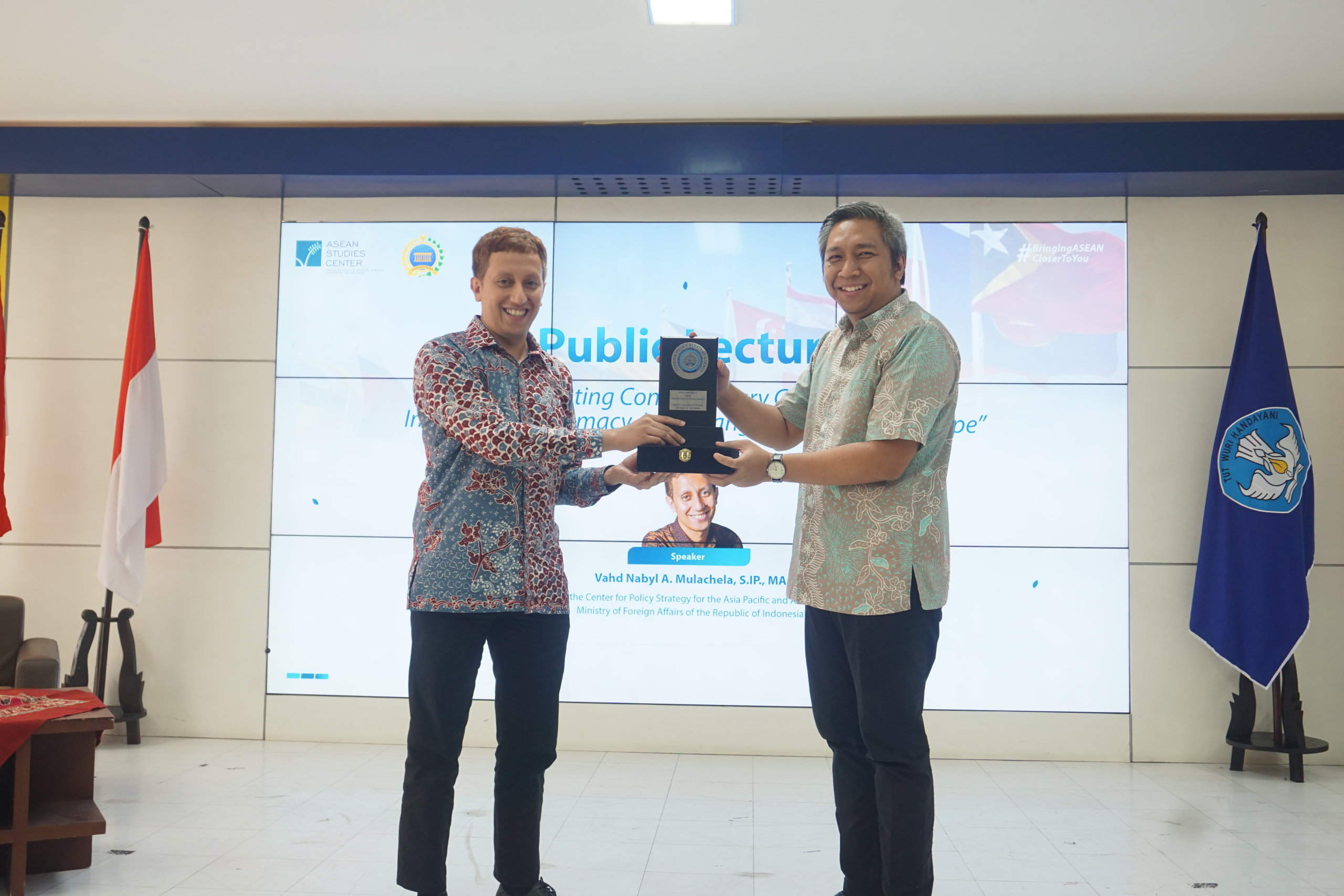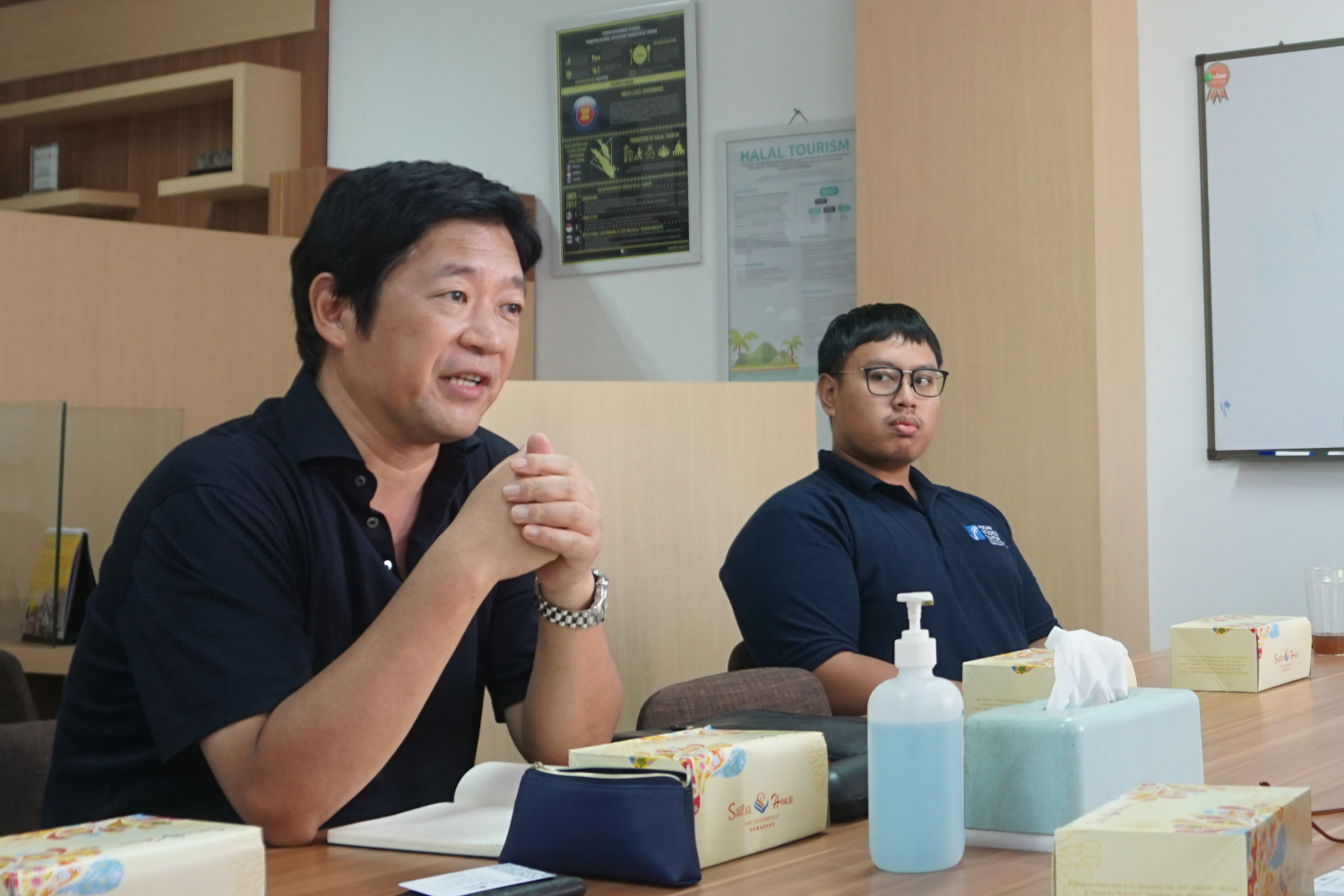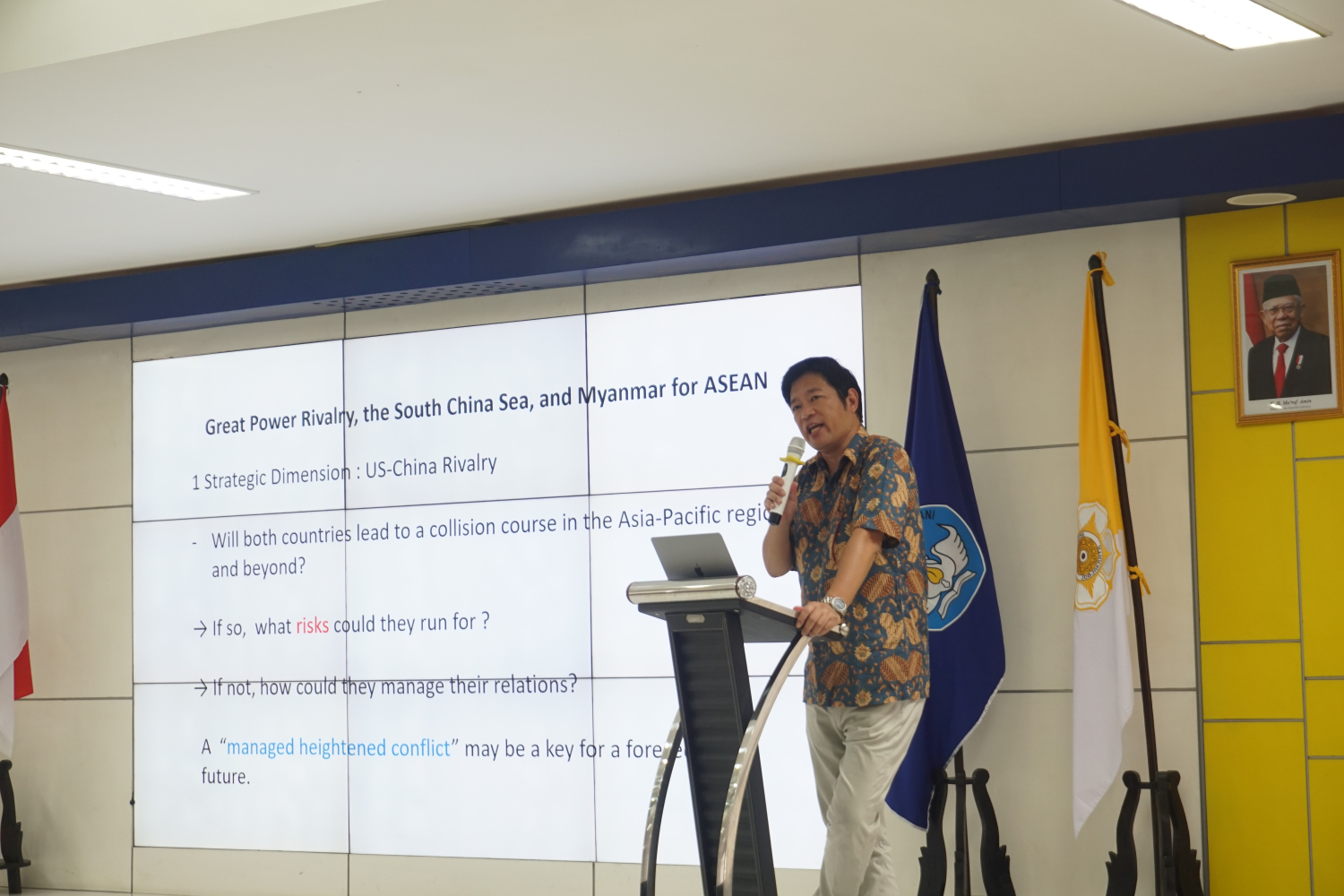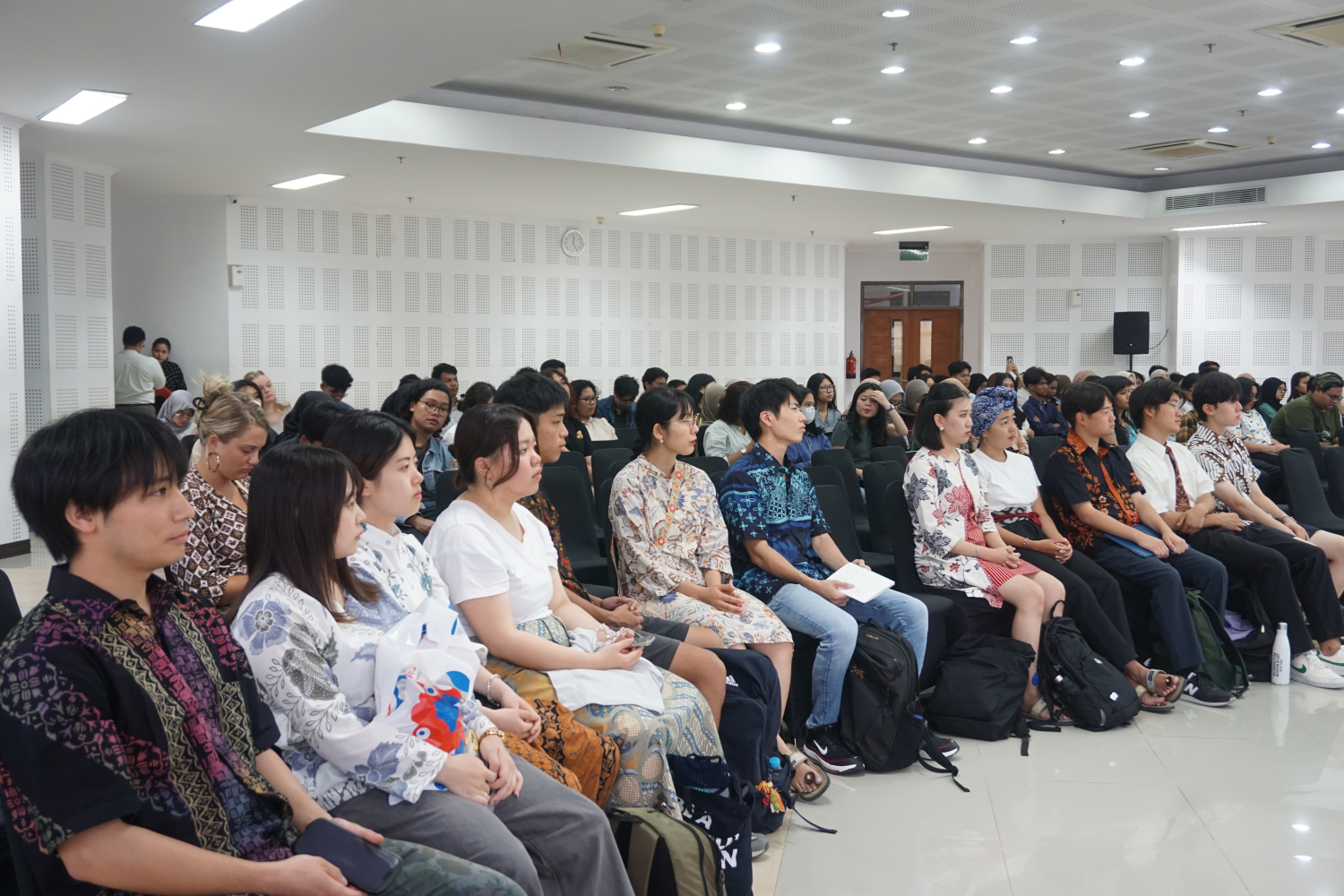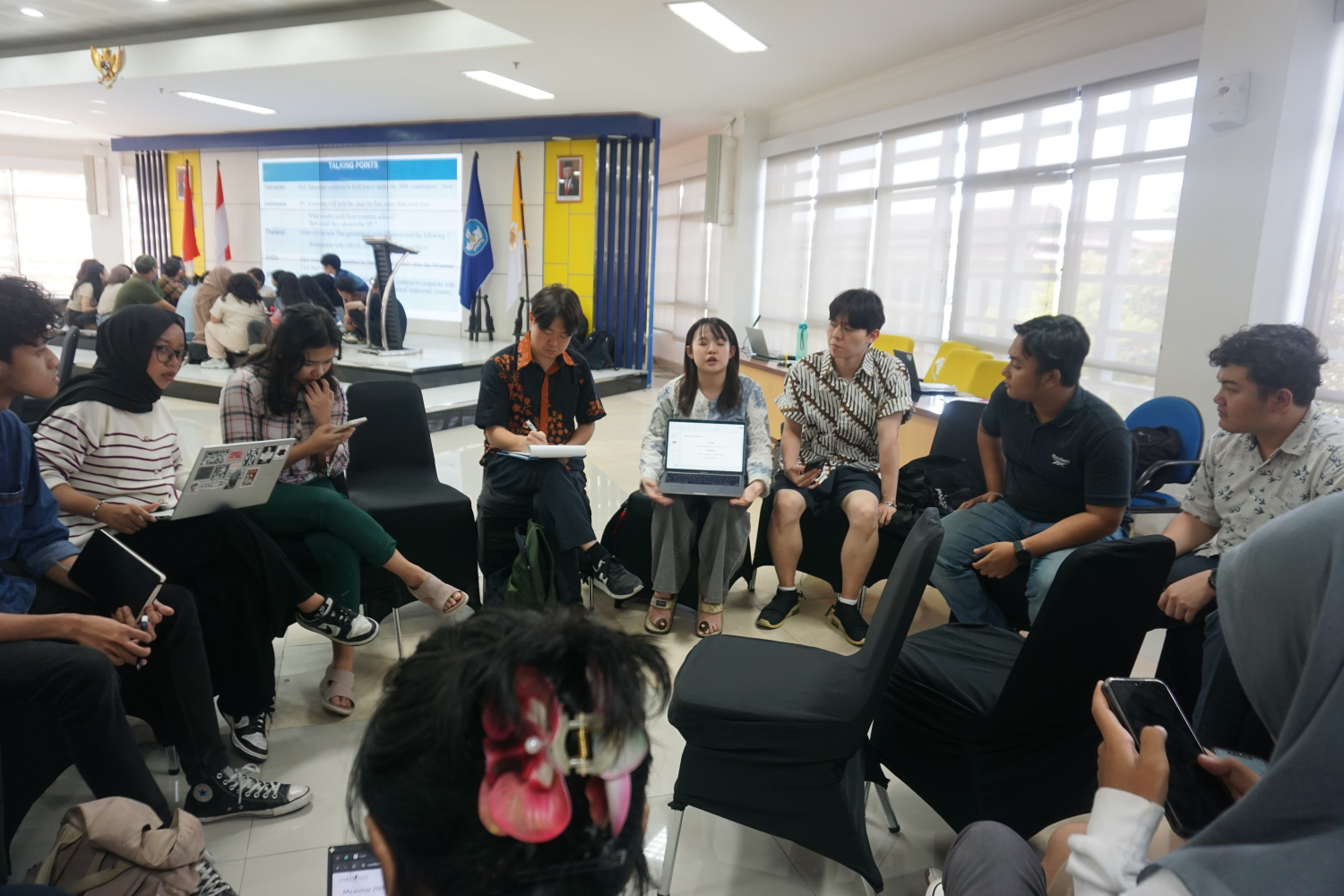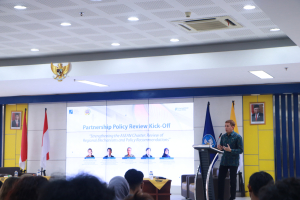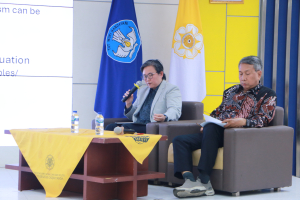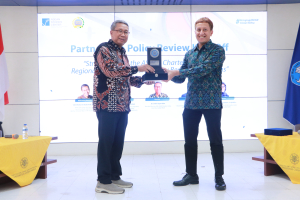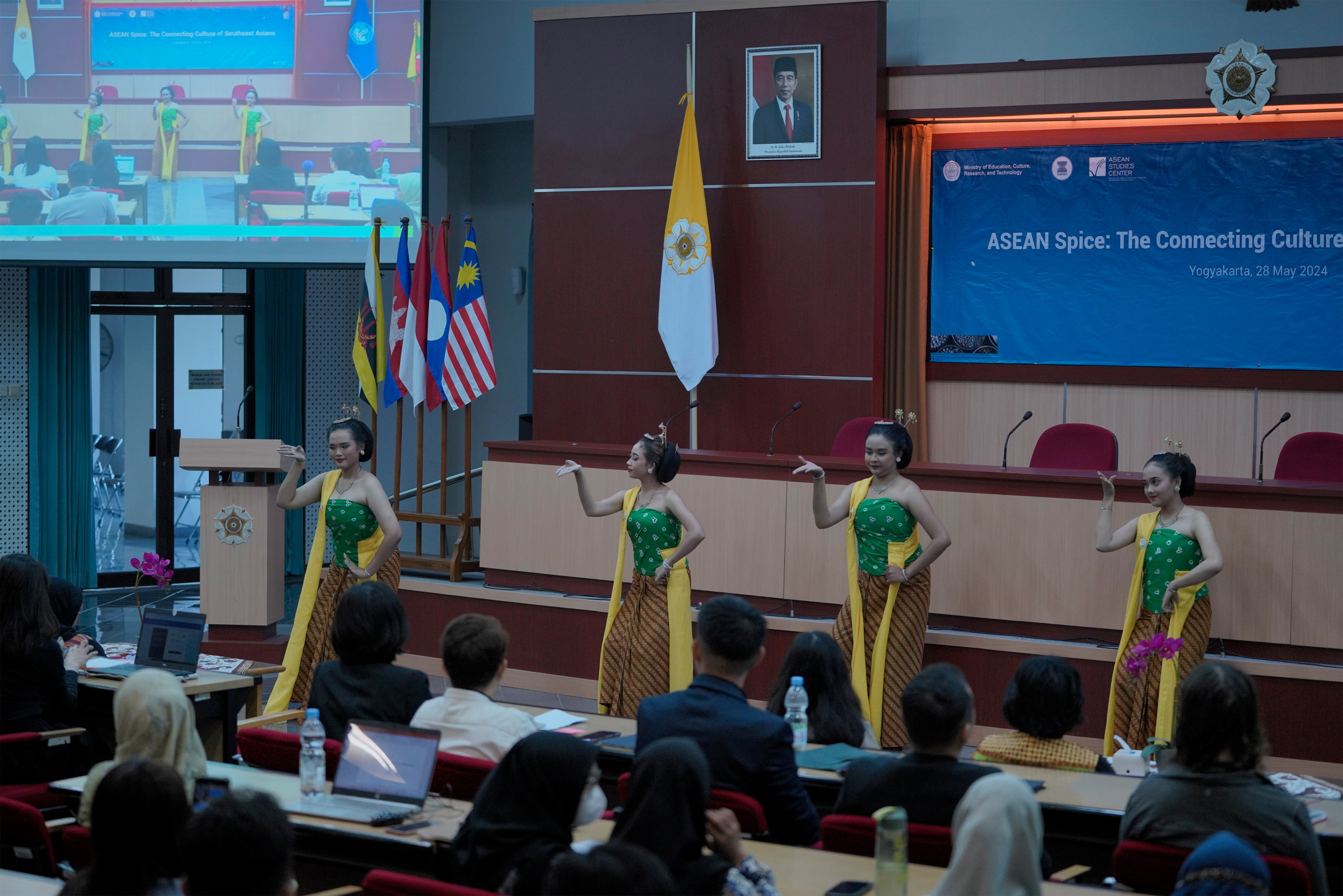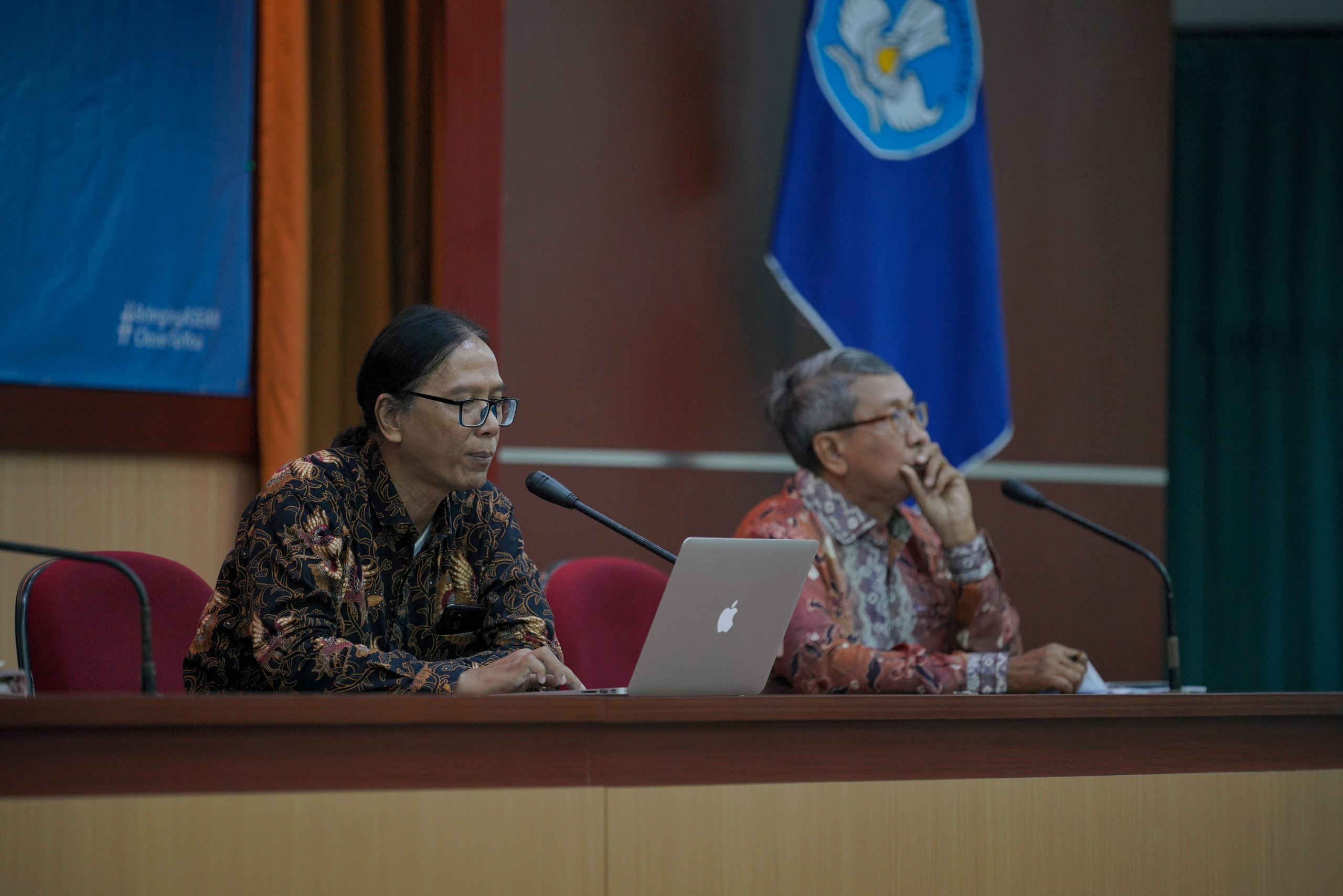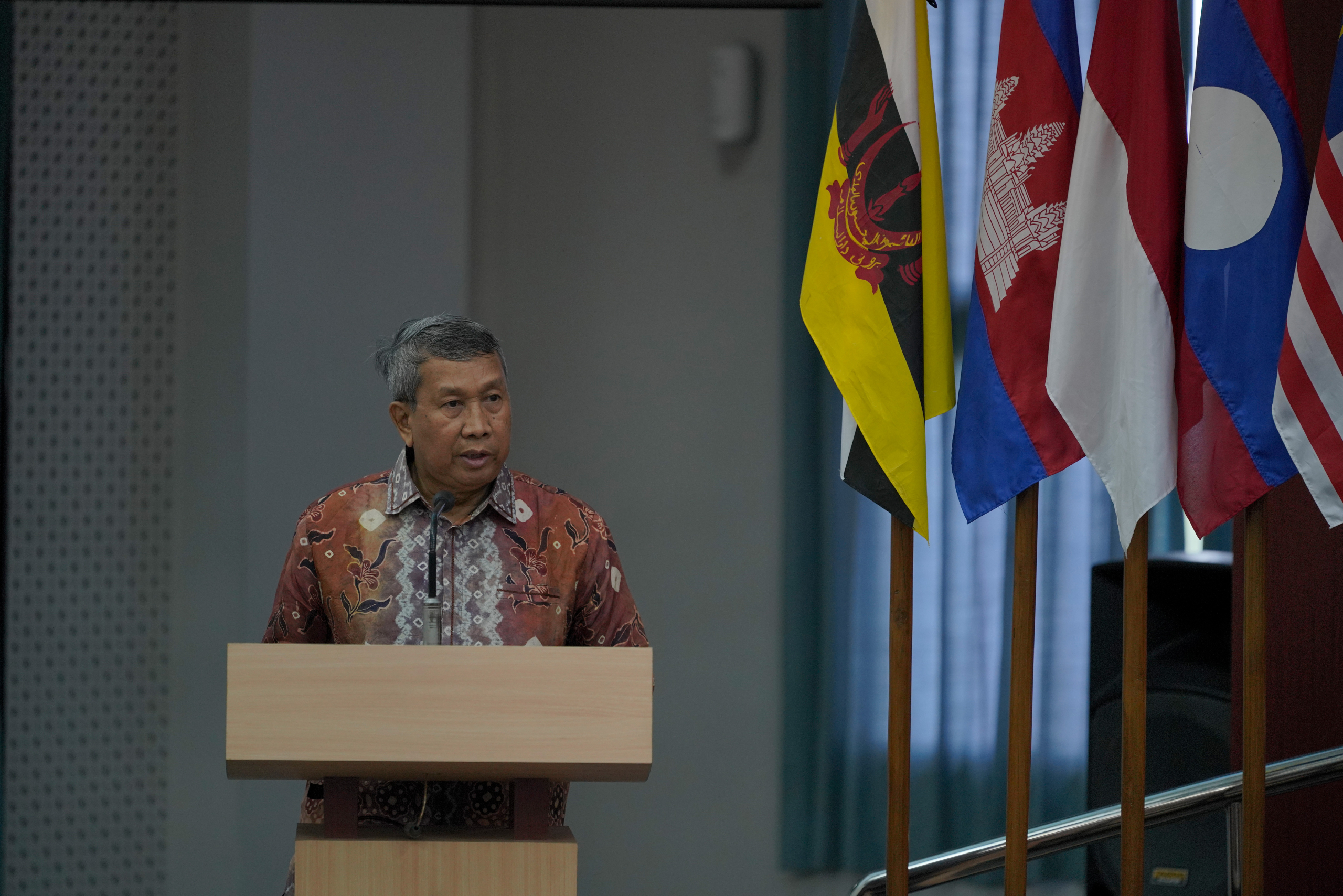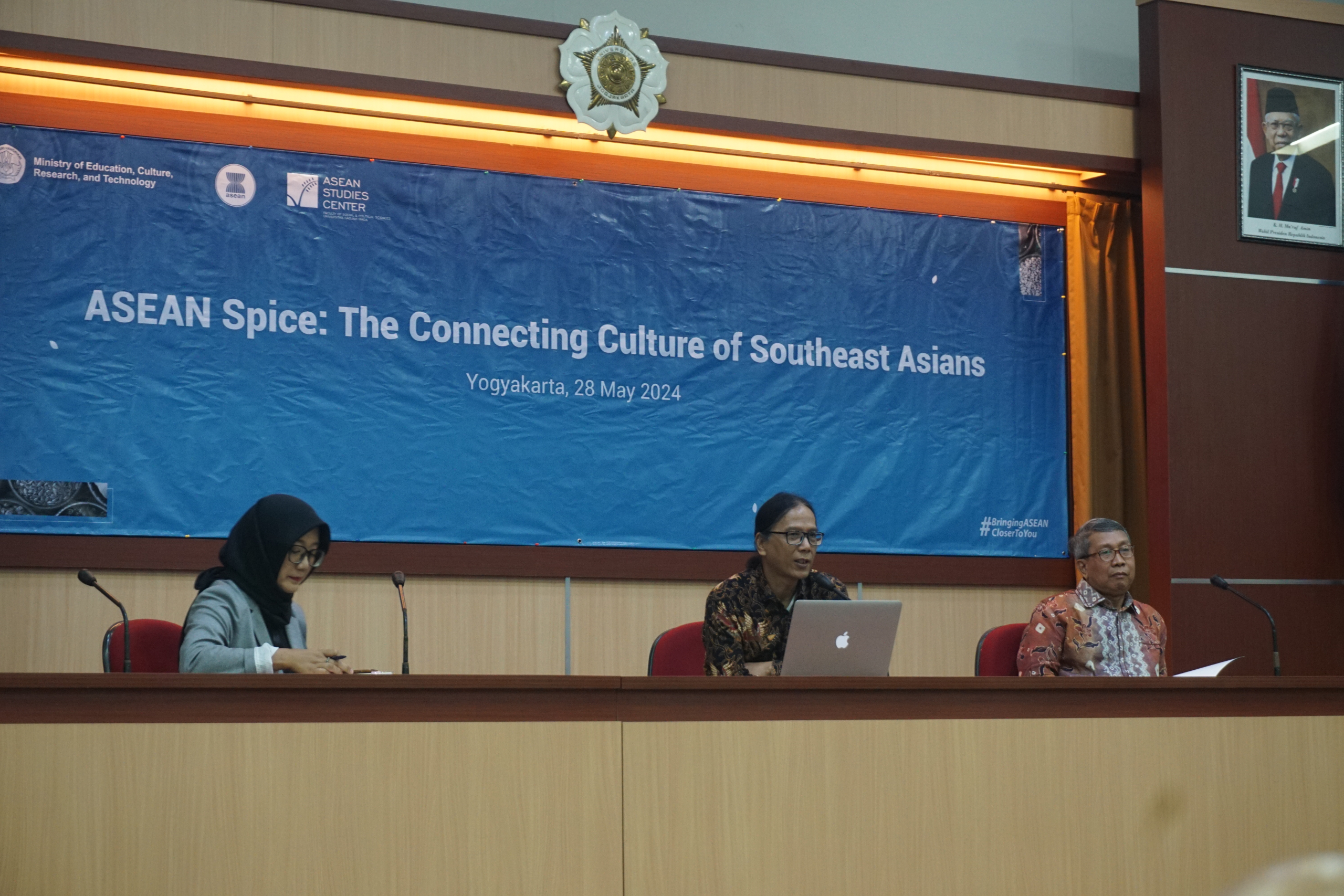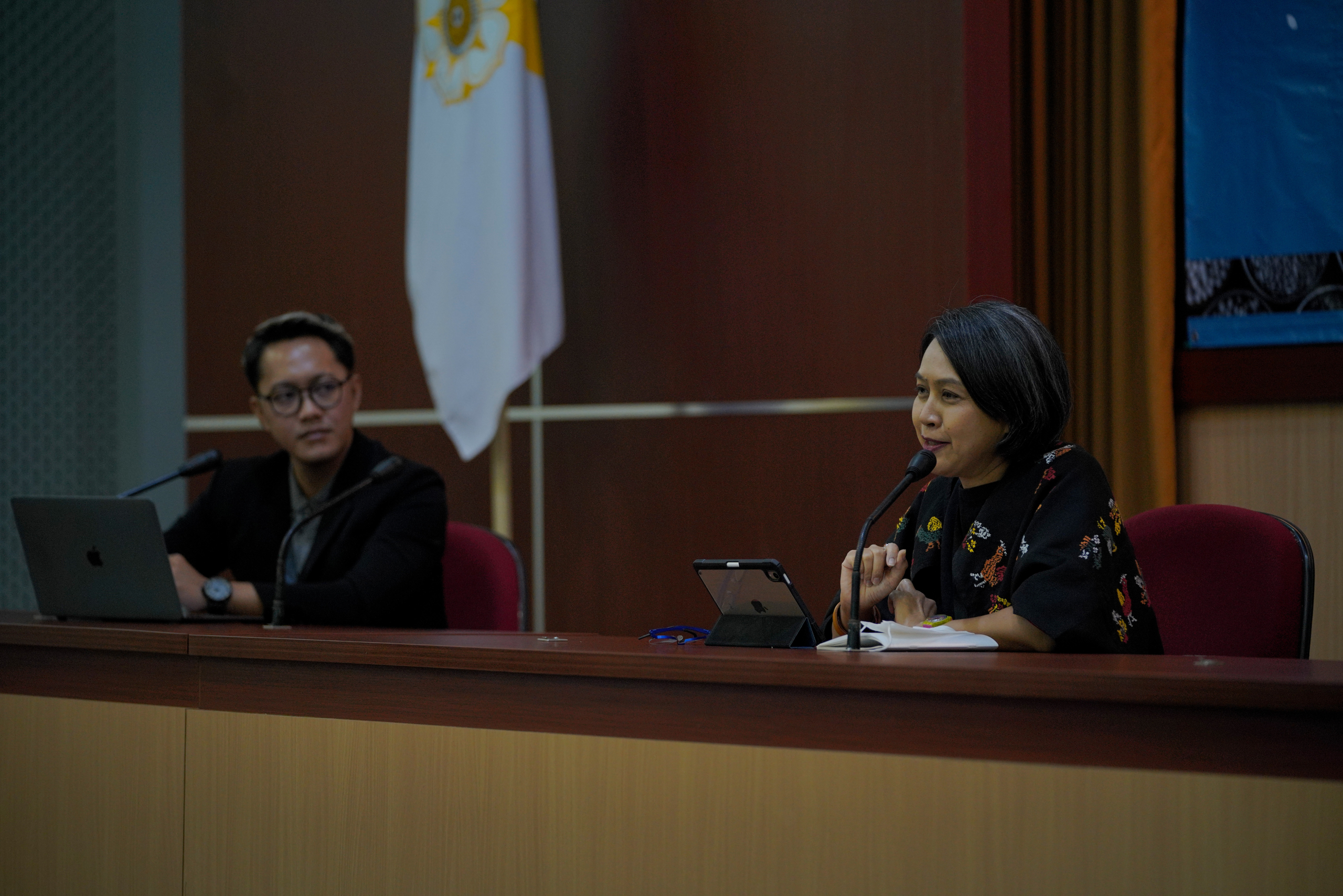Forgotten: ASEAN’s Vision on Disaster Management
It was merely three months ago when Indonesians headed to the polls to elect their municipal leaders in the 2024 local elections. As many as 207 million eligible voters were expected to vote in 37 provinces, 415 regencies and 93 cities (Yuniarto, 2024). Yet, millions of voters were barred from exercising their democratic right due to an unanticipated disaster. In the province of North Sumatra, hundreds of polling stations in certain areas were flooded and, consequently, unable to operate. As a result, the Indonesian Election Commission had to schedule revotes in 110 polling stations across North Sumatra (Nefi, 2024). In September 2024, the Indonesian Agency for Meteorological, Climatological and Geophysics (BMKG) issued a warning that earthquakes from two megathrust zones, namely the Sunda Strait Megathrust and the Mentawai-Siberut Megathrust are imminent (Dewi, 2024). The Head of the Agency, Daryono, stated that these two zones have not experienced earthquakes for more than two centuries and the buildup of stress between the plates will inevitably lead to a great earthquake. These two situations provoke an alarming question to Southeast Asian countries – in this case, governments: what is the plan?
History of ASEAN Disaster Management Strategy
Although the disasters have ended or have yet to come, the issue remains alive and kicking. Southeast Asia is known to be one of the most disaster-prone regions in the world, with 40% of its population having experienced a natural hazard in the past five years (Vigers, 2024). Last year, on December 26, 2024, marked the 20th anniversary of the 2004 Indian Ocean Tsunami, which devastated thousands of communities in Indonesia and Thailand. Ever since this tragedy, Southeast Asian nations have made significant progress to improve disaster management systems, such as establishing responsive governance, allocating disaster risk and contingency funds, and strengthening regional collaboration (Agbisit, 2024). The third point is particularly critical as the transboundary nature of disasters requires an enduring collaboration between states. ASEAN, as the only regional organization in Southeast Asia, is key to achieving a staunch and effective disaster management strategy.
There is no denying that ASEAN has achieved substantial advancements in terms of disaster management. After the 2004 tsunami, member states signed the ASEAN Agreement on Disaster Management and Emergency Response (AADMER) and installed the ASEAN Coordinating Centre for Humanitarian Assistance on Disaster Management (AHA Centre). These measures laid the foundation for the organization’s disaster management coordination and schemes (Djalante & Ponto, 2024). They have also prompted the community to kickstart other programs to better prepare for future natural hazards, such as establishing the ASEAN Emergency Response and Assessment Team (ASEAN-ERAT) and Disaster Emergency Logistics System for ASEAN (DELSA). All of these measures are executed with the purpose of achieving the ASEAN Vision 2025 on Disaster Management.
The Successes and Drawbacks
ASEAN has been applauded by the international community for its accomplishments in learning the lessons of 2004. For instance, the 2023 World Risk Poll reported that 67% of Southeast Asian adults believe they could protect themselves and their families from a future disaster. Furthermore, Caballero-Anthony et. al. (2023) argued that ASEAN has proven to be instrumental in supporting member states’ disaster relief and humanitarian operations, especially during the 2008 Nargis Cyclone and the 2018 Central Sulawesi earthquakes. ASEAN’s preparedness in disaster management has arguably surpassed that of North America. In fact, it is logical to believe that these triumphs may have propelled ASEAN onto the pinnacle of world leadership in disaster diplomacy.
While ASEAN may currently be hit by a “tsunami” of appraisals, one must not overlook the drawbacks that follow. Recently, it has become more obvious that ASEAN is regressing in its efforts to achieve disaster management targets. Firstly, according to the Asia-Pacific Disaster Report 2022, ASEAN is falling short across nearly all indicators in terms of reaching the Sendai Framework for Disaster Risk Reduction targets. Secondly, although ASEAN has adopted numerous frameworks to tackle the underlying issues, national governments seem to lack the leadership to implement them, even occasionally diverge from them (Caballero-Anthony, et. al., 2023). This challenge is further exacerbated by ASEAN’s non-intervention principle, which hinders any criticisms towards the actions of its member states (Arumbinang, 2022). Thirdly, despite efforts to develop a quick-response system for disasters, ASEAN still lacks the sense of urgency to react to such life-threatening situations. Khotimah & Putra (2019) highlight the worrying implications of ASEAN’s treatment towards post-natural disaster situations as an opportunity to improve quality of life rather than a threat to security and peace. These circumstances put ASEAN’s approaches and institutional structures into question. The author stresses that those liabilities must be of concern to ASEAN policymakers as failure to mitigate them could possibly destroy ASEAN’s global reputation in disaster management.
A Forgotten Issue and What Should Be Done About It?
As the deadline for accomplishing the targets of ASEAN Vision 2025 is approaching, one must observe the subsequent steps that should be taken. On October 11, 2024, Malaysia, as the 2025 ASEAN Chairman, unveiled the theme of ASEAN Chairmanship 2025, “Inclusivity and Sustainability” (MFA Malaysia, 2024). At first glance, one might think the discussion on further actions to complement the 2023 ASEAN Leaders’ Declaration on Sustainable Resilience – a declaration on disaster management and environment – will be included. However, topics on disaster management have been discovered to be unprioritized and overshadowed by other crises, such as the South China Sea dispute and the Myanmar Civil War. In addition, a Second Donald Trump Presidency has caused several concerns about future trade relations and the prospect of another US-China trade war.
ASEAN would have to brace itself for a challenging ride this year. As much as it is critical to resolve unsettled issues, it is also vital not to disregard the responsibility to maintain initial successes, specifically in disaster diplomacy. The author believes that there are two ways to address this matter. Firstly, Malaysia has to set a precedent for succeeding ASEAN chairmen to prioritize disaster management as an annual priority to boost development on this issue. Secondly, instead of continuing the path of consensus-driven diplomacy, ASEAN must show clarity and utilize a more assertive approach in terms of realigning member states’ disaster management policies with ASEAN’s framework in order to cement unity on this issue.
The never-ending threats of disaster have continually put Southeast Asian people in danger. The recent floods in Indonesia and the megathrust earthquake warning should be a wake-up call for ASEAN not to view human lives lightly. That is why reinvigorating ASEAN’s disaster management blueprint is fundamental to solidifying ASEAN as not just a sidekick but a leader in disaster diplomacy.
References
Agbisit, J. B. (2024, October 8). 2004 Indian Ocean Tsunami: A Turning Point in Disaster Resilience. The ASEAN Magazine. https://theaseanmagazine.asean.org/article/2004-indian-ocean-tsunami-a-turning-point-in-disaster-resilience/
AKCF. (n.d.). ASEAN Coordinating Centre for Humanitarian Assistance on Disaster Management (AHA Centre). ASEAN Korea Cooperation Fund. https://www.aseanrokfund.com/our-partners/asean-coordinating-centre-for-humanitarian-assistance-on-disaster-management-aha-centre
Arumbinang, M. H. (2022). Problems and Dilemmas: ASEAN Commitments in Disaster Management. Indonesian Comparative Law Review, 4(1), 17–25. https://doi.org/10.18196/iclr.v4i1.13219
Caballero-Anthony, M., Cook, A. D. B., & Lassa, J. (2023, March 2). Disaster Management in Southeast Asia: 20 Years of Progress and Challenges. S. Rajaratnam School of International Studies. https://www.rsis.edu.sg/rsis-publication/nts/disaster-management-in-southeast-asia-20-years-of-progress-and-challenges/?doing_wp_cron=1677830612.6909389495849609375000#.ZAG5_HZBzIW
Dewi, I. R. (2024, December 30). BMKG Sebut Gempa Megathrust RI Hanya Tunggu Waktu, Ini Zona Merahnya. CNBC Indonesia. https://www.cnbcindonesia.com/tech/20241230110310-37-599471/bmkg-sebut-gempa-megathrust-ri-hanya-tunggu-waktu-ini-zona-merahnya
Djalante, R. & Ponto, J. (2024, October 8). ASEAN’s Strengthened Disaster Preparedness and Response Framework. The ASEAN Magazine. https://theaseanmagazine.asean.org/article/aseans-strengthened-disaster-preparedness-and-response-framework/
Ing, L. Y. & Vadilla, Y. (2024). How A Second Trump Presidency Will Impact ASEAN Economy. Jakarta Globe. https://jakartaglobe.id/opinion/how-a-second-trump-presidency-will-impact-asean-economy
Khotimah, N. H. & Putra, K. I. (2019, October 10). A Resilient ASEAN?: ASEAN and Resilience in Natural Disaster. ASEAN Studies Center Universitas Gadjah Mada. https://asc.fisipol.ugm.ac.id/2019/10/10/a-resilient-asean-asean-and-resilience-in-natural-disaster/
MFA Malaysia. (2024). LAUNCHING CEREMONY OF THE LOGO AND THEME OF ASEAN-MALAYSIA CHAIRMANSHIP 2025. Ministry of Foreign Affairs Malaysia. https://www.kln.gov.my/web/guest/-/launching-ceremony-of-the-logo-and-theme-of-asean-malaysia-chairmanship-2025-22-october-2024
Natalia, T. (2024, September 21). Gempa Megathrust Tinggal Tunggu Waktu, Ini 13 Wilayah Paling Rawan! CNBC Indonesia. https://www.cnbcindonesia.com/research/20240921144456-128-573543/gempa-megathrust-tinggal-tunggu-waktu-ini-13-wilayah-paling-rawan
Nefi, A. (2024, November 28). Banjir Saat Pilkada, 110 TPS di Sumut akan Gelar Pemungutan Suara Susulan. Tempo. https://www.tempo.co/politik/banjir-saat-pilkada-110-tps-di-sumut-akan-gelar-pemungutan-suara-susulan-1174211
Ramzi, M. H. (2024, October 25). Why 2025 Is a Make or Break Year for ASEAN Unity. The Diplomat. https://thediplomat.com/2024/10/why-2025-is-a-make-or-break-year-for-asean-unity/
Tan, A. & Louis, Y. M. (2024, October 16). Malaysia’s ASEAN chairmanship is a catalyst, not a panacea. Lowy Institute. https://www.lowyinstitute.org/the-interpreter/malaysia-s-asean-chairmanship-catalyst-not-panacea
Vigers, B. (2024, August 15). Southeast Asia Feels Prepared for Disasters. Gallup. https://news.gallup.com/poll/648242/southeast-asia-feels-prepared-disasters.aspx
Yuniarto, T. (2024, August 29). Pilkada Serentak 2024: Jumlah Pemilih Potensial, Anggaran, dan Tahapan. Kompaspedia. https://kompaspedia.kompas.id/baca/paparan-topik/pilkada-serentak-2024-alur-data-dan-tren-sosial-politik
Short Biography:
Daniel Emmanuel Situmeang is an undergraduate student at the Department of International Relations at Universitas Gadjah Mada. He can be reached through e-mail at danielemmanuelsitumeang@mail.ugm.ac.id.


